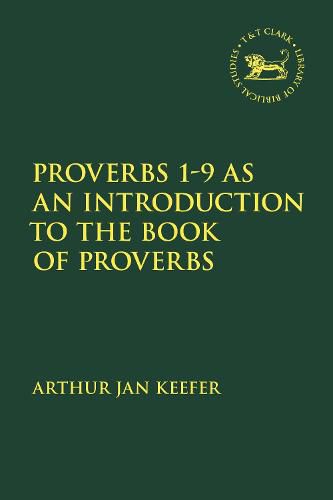Readings Newsletter
Become a Readings Member to make your shopping experience even easier.
Sign in or sign up for free!
You’re not far away from qualifying for FREE standard shipping within Australia
You’ve qualified for FREE standard shipping within Australia
The cart is loading…






Proverbs 1-9 has long been called a ‘prologue’ and ‘introduction’ to the book of Proverbs, a label that this book clarifies by answering the question: how does Proverbs 1-9 function with respect to the interpretation of Proverbs 10-31? Arthur Keefer argues that, in the detail and holistic context of Proverbs, Proverbs 1-9 functions didactically by supplying interpretive frameworks in literary, rhetorical and theological contexts for representative portions of Proverbs 10-31.
Keefer suggests that Proverbs 1-9 functions didactically by teaching interpretive skills, and allows interpretation of Proverbs 10-31 by instilling the competence required to explicate this material. As a result, Proverbs 1-9 provides a didactic introduction for the remainder of the book, particularly with respect to its character types, educational goals, and theology. This volume demonstrates the function of Proverbs 1-9 for Proverbs 10-31 in some of the most prominent interpretive contexts of the book, and in doing so advances current key interpretive debates within Proverbs scholarship.
$9.00 standard shipping within Australia
FREE standard shipping within Australia for orders over $100.00
Express & International shipping calculated at checkout
Proverbs 1-9 has long been called a ‘prologue’ and ‘introduction’ to the book of Proverbs, a label that this book clarifies by answering the question: how does Proverbs 1-9 function with respect to the interpretation of Proverbs 10-31? Arthur Keefer argues that, in the detail and holistic context of Proverbs, Proverbs 1-9 functions didactically by supplying interpretive frameworks in literary, rhetorical and theological contexts for representative portions of Proverbs 10-31.
Keefer suggests that Proverbs 1-9 functions didactically by teaching interpretive skills, and allows interpretation of Proverbs 10-31 by instilling the competence required to explicate this material. As a result, Proverbs 1-9 provides a didactic introduction for the remainder of the book, particularly with respect to its character types, educational goals, and theology. This volume demonstrates the function of Proverbs 1-9 for Proverbs 10-31 in some of the most prominent interpretive contexts of the book, and in doing so advances current key interpretive debates within Proverbs scholarship.